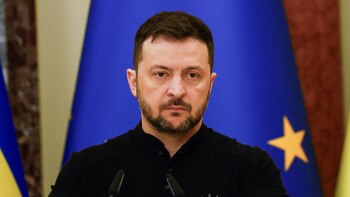
In recent weeks, social networks, news and newspapers have been flooded with controversies involving politicians who aspire to reach Casa de Nariño. Of all the presidential and vice-presidential candidates, at least one scandal has emerged, something that is common in the run-up to the elections.
One of the most recent scandals has to do with the Vice-Presidential candidate for the Historical Pact, Francia Márquez, who was in the eye of the hurricane because she has received state subsidies. Although this is not a sin for many, since it is well known that the social leader is not a wealthy woman, much less belonging to the country's elites, her opposition was responsible for generating a whole controversy around this issue.
María Andrea Nieto, director of the El control program, was the person who released the information and also seriously questioned whether Marquez received the Solidarity Income because she has been one of the biggest critics of all the policies implemented by the Government of Iván Duque.
The director of the program did not stop there and questioned whether the social leader is really still in a state of economic vulnerability, since she received 25 contributions equivalent to four million Colombian pesos: “If Francia Márquez's home was vulnerable during the year of the pandemic, she had every right to access the State resources. But is it still a vulnerable home? When did you retire from Sisben three?”
Social Prosperity clarified that there are no grounds to remove Francia Márquez's home from the Solidarity Income program
Following all the allegations that Francia Márquez suffered on this issue, the Department of Social Prosperity pronounced itself and clarified what support has been from the state that the candidate for the Vice-Presidency of Colombia has received.
Prosperidad Social reported that the home of Francia Márquez has so far received 25 payments corresponding to the Solidarity Income drafts: 23 monthly of 160,000 pesos, until December 2021; and one bimonthly, this year, of 380,000 pesos. That's equivalent to 4,060,000 pesos.
He also highlighted that the data taken into account for the inclusion of Colombian households in the program are those issued by Sisbén.
In addition, Prosperidad Social took the opportunity to recall that in March of this year it issued very clear information on the use of programs in political campaigns and the use of confidential information.
“The databases of cash transfer programs are not public: they are all legally reserved and cannot be shared or used by third parties,” said the entity.
KEEP READING:
Últimas Noticias
Debanhi Escobar: they secured the motel where she was found lifeless in a cistern
Members of the Specialized Prosecutor's Office in Nuevo León secured the Nueva Castilla Motel as part of the investigations into the case

The oldest person in the world died at the age of 119
Kane Tanaka lived in Japan. She was born six months earlier than George Orwell, the same year that the Wright brothers first flew, and Marie Curie became the first woman to win a Nobel Prize

Macabre find in CDMX: they left a body bagged and tied in a taxi
The body was left in the back seats of the car. It was covered with black bags and tied with industrial tape
The eagles of America will face Manchester City in a duel of legends. Here are the details
The top Mexican football champion will play a match with Pep Guardiola's squad in the Lone Star Cup

Why is it good to bring dogs out to know the world when they are puppies
A so-called protection against the spread of diseases threatens the integral development of dogs




